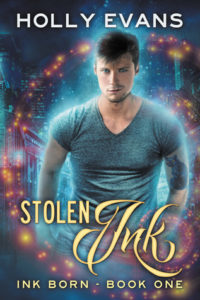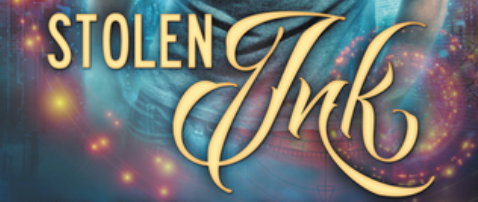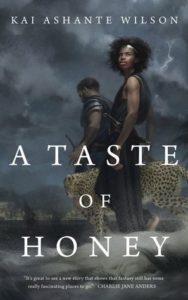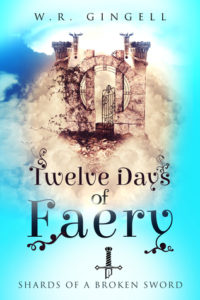 I received a copy of Holly Evans‘ Stolen Ink from Netgalley.
I received a copy of Holly Evans‘ Stolen Ink from Netgalley.
Description from Goodreads:
I’m Dacian, a tattoo magician, and my life went from my biggest concern being finding a pretty guy to fall into bed with at the end of the week to everything falling apart around me.
There are two problems in my life.
Number one – I’m an ink magician, the thing of myths. A lot of very powerful people would love to get their hands on me, and I have no intention of letting that happen.
Number two – A tattoo thief came to my city, and the magical community has decided that I’m the guy to stop them.
Somehow, I have to catch the thief without letting my secret out of the bag, and that’s even harder than it sounds.
Review:
I was seriously disappointed in this book. There is such a cool idea here. The connection between characters and their tattoo/companion animals is really interesting. Unfortunately the author did not pull it all together in a complete, engaging story.
The biggest problem is the writing. Sure, it’s readable and the dialogue isn’t such that it feels amateurish, it’s even pretty, but it all feels very shallow, like the reader is only given access to the surface of a much deeper story. I felt cheated. For a long time, after starting the book, I thought this must be a latter book in a series, because I wasn’t sure what was going and the characters seem to have so much history that we’re not given. Further, so much of the writing is tell, instead of show. I just never felt connected or invested in anything or anyone. Then it climaxes suddenly and is over.
I was left with some really basic unanswered questions, like what was the fundamental difference between and Ink and Tattoo Magician? Why did being an Ink magician need to be hidden from the council. Why was the council so scary and useless? What were the tattoo animals if not spirit animals, which they weren’t as a spirit animal is something different? And if it’s the bearer’s, say, soul, which it is kind of inferred they may be, how can they have more than one? It all led to a deep feeling of dissatisfaction. I didn’t hate it. In fact, I really wanted to like it because I liked the idea of it. I’d probably be willing to give the author another shot, but this one was a bust for me. Oh, and the cover doesn’t match the dark tone of the book or main character at all.

 I borrowed Kai Ashante Wilson’s
I borrowed Kai Ashante Wilson’s  I picked up a free copy of
I picked up a free copy of